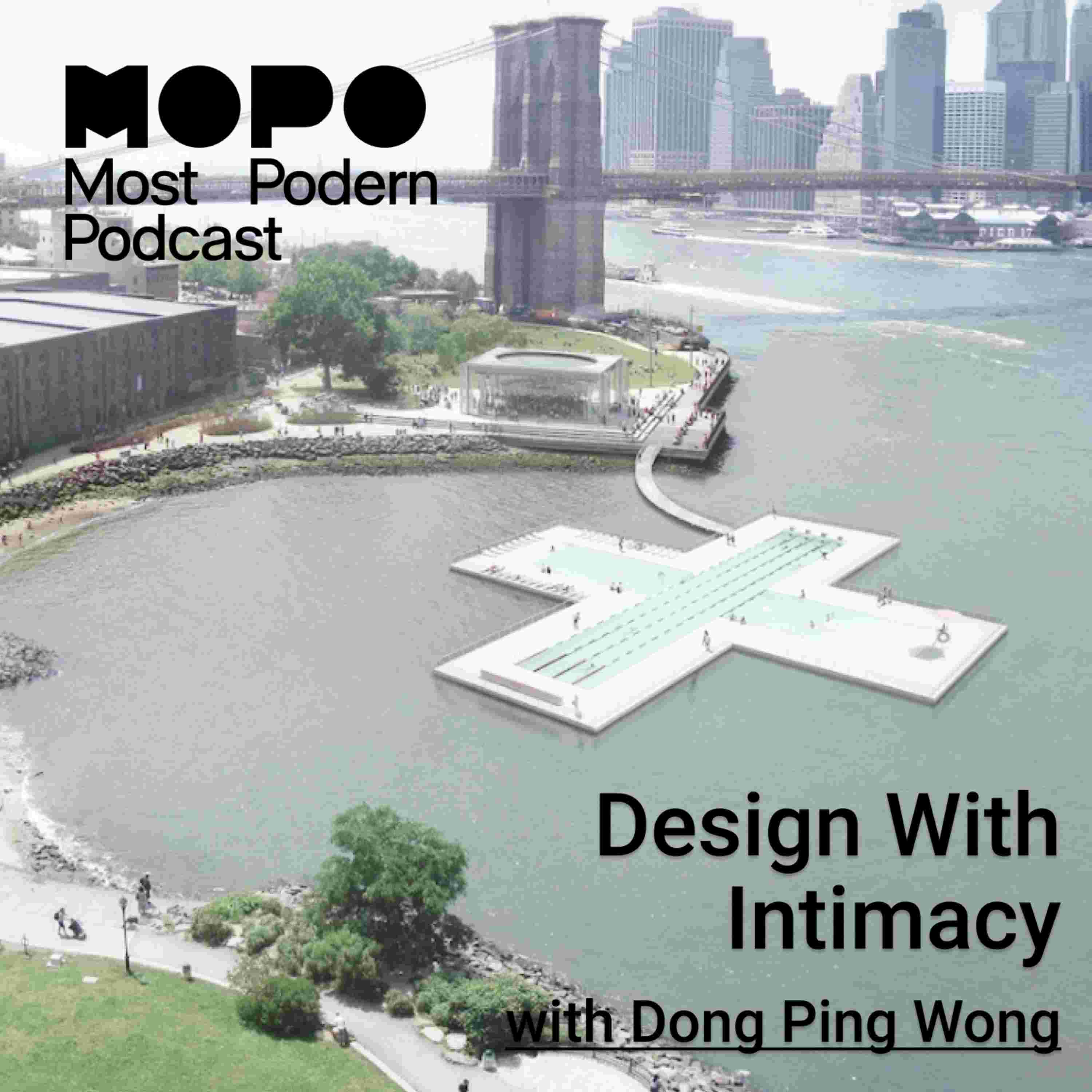

What if a pool could clean a river—and a building could rewrite culture? Would you swim in the East River? What does “local” look like when it doesn’t mimic the block around it?
Architect Dong-Ping Wang (FOOD Architects)—who’s collaborated with Kanye West and Virgil Abloh—breaks down architecture as a cultural engine, from hyperlocal listening to rapid, messy sketching that invites feedback fast. He shares a Barbados culinary design studio with Pierre Seurat (Ghetto Gastro), why WhatsApp-level intimacy with clients beats sterile presentations, and how a tiny 6–8 person team caps projects to stay deeply hands-on.
We dive into PLUS POOL: the plus-shaped, river-filtering pool that turned a single rendering, a patent, and a site into a movement—and why the biggest risk isn’t tech, it’s convincing New Yorkers to jump in. DPW also opens up about shaping an Asian-American architectural language, rethinking practice as an “architectural production studio,” and the simplest way to read a space: look up at the ceiling.
https://www.instagram.com/dongpingwong/
https://www.instagram.com/foodmahjongclub/
00:00 The Importance of Local Culture in Architecture02:02 Navigating Client Relationships and Intimacy05:27 Architecture as a Cultural Vehicle06:49 Fluidity in Architectural Practice09:09 Working with Creative Clients10:21 Scaling Intimacy in Architecture12:28 The Architectural Production Studio Model16:04 The Plus Pool Project: Origins and Development24:25 The Power of Packaging in Architecture27:40 Local Context and Cultural Identity30:34 Post-Occupancy Analysis and Success Metrics32:58 Exploring Scales of Architectural Practice37:02 Cultural Identity and Architectural Expression39:43 Lessons from Other Creative Fields45:36 Cultural Shifts and Future Perspectives